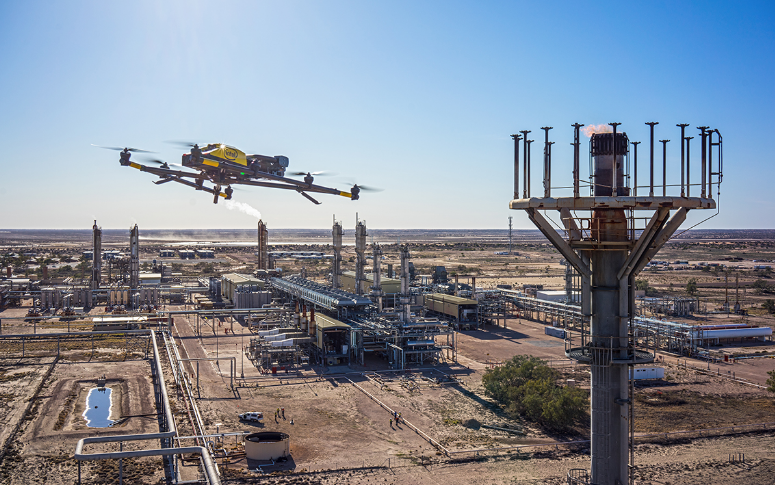Wondering what does a GIS specialist do? These professionals play a crucial role in helping businesses understand the relationship between geographic data and real-world locations. From mapping terrain to managing spatial databases, the role of a GIS consultant or specialist is vital across industries.
They use specialised software to gather, process, and evaluate large geographic data sets and produce digital maps and models. Pursuing a potentially fascinating profession in this industry requires understanding what these geomatics experts do and what they need in their roles.
But what exactly does a GIS Specialist do? In this blog, we’ll explore the multifaceted role of a GIS Specialist, their key responsibilities, and their significant impact on different sectors.
Need a GIS Expert for Your Next Project?
Leverage professional GIS solutions for accurate mapping, analysis, and decision-making. Connect with GIS Navigator today!
📞 Schedule a Call | 📩 Email Us | 💼 Get a Quote Now
What is a GIS Specialist?
If you’re asking yourself, “what is GIS specialist really responsible for?”, they are professionals skilled in managing, analysing, and presenting spatial data for practical, decision-making purposes.
Because of their specialist classification, they work primarily with the geographic information systems that they manage and control. They can produce visual models and maps that depict geographical elements for construction, environmental science, or natural resource management thanks to the geospatial data they manage.
GIS analysts and specialists frequently share duties and responsibilities. The job title is the only distinction.
Let’s explore the profession of a GIS specialist today. And do they qualify as unique?
Understanding Geographic Information System (GIS)
Before we discuss the specifics of a GIS Specialist’s duties, it’s essential to understand what GIS is.
GIS stands for Geographic Information System. It is an informational and software collection for managing, organising, visualising, and evaluating geographic data.
It generally enables users to update data, generate maps, charts, and reports that visually provide viewers with the results, analyse spatial data, and look up information about specific geographic locations.
The visual presentation of data via GIS facilitates problem-solving and helps users find answers to their queries.
Explore: What industries use GIS?
Role of a GIS Analyst

Managing Databases of Geographic Data
GIS professionals use specialised software and related hardware to gather and handle vast geographic and geospatial data. Effectively managing this software may involve gathering and preserving data in ways that make it simple to access, browse, and process. This includes maintaining their databases current and making sure their data is accurate. They might routinely update their databases or carry out quality control measures. The sources from which GIS professionals may obtain their data vary based on the company they work for and may include:
- Government organisations
- Commercial data aggregators
- Field data collection
- Open-source data repositories
Programming Geographic Information Systems and IT support
GIS specialists use specialised geographic information systems to interpret data and create maps and models. These systems can be complicated, requiring practice and education to become proficient in. In addition to helping people who need to become more familiar with this technology navigate these systems and achieve the necessary outcomes, GIS specialists can offer IT and technical support.
Creating Digital Maps and Models
GIS specialists employ a range of data points and their sophisticated knowledge and expertise to create digital maps and models of real-world geographical regions. These could be maps in two dimensions or three dimensions. Businesses may use these maps or models for construction, mining, urban planning, and other uses requiring a digital record of geographic space.
Coding with Scripting Languages
Programming language expertise can help GIS specialists increase productivity and streamline processes. To maintain or modify their data, they might also employ customer coding. They might even develop custom tools or programs to help them with their task. They might use standard code languages that programmers utilise for different applications. Nonetheless, GIS experts who pick up other languages might be more equipped to adjust to emerging or new technology.
Looking to Enhance Your Geospatial Capabilities?
A GIS specialist can transform data into valuable insights for better planning and efficiency. See how GIS Navigator can assist!
📞 Schedule a Call | 📩 Email Us | 💼 Get a Quote Now
GIS Role Description
The job description for a GIS specialist has several recurring features. For instance, the following skill sets are typically required for GIS specialists’ jobs:
- Technical Expertise: They perform the role of Geographic Information Systems technical experts. GIS experts surpass expectations in every work they do. They may work as database administrators, programmers, or in IT-related positions.
- Data Maintenance: In GIS, creating and maintaining geographic data is essential. A GIS cannot exist without spatial data. As the principal data custodian, GIS specialists follow and develop guidelines that support the organisation’s accuracy and quality to a certain point.
- Mapping: The foundation of GIS visualisation is mapping. Building cartographic output is a fair part of the job description for a GIS specialist. The principles of cartography extend beyond creating traditional paper maps; they also encompass the development of interactive web maps for online use. Explore: What is GIS mapping?
- Scripting Analysis: These days, it’s typical to find coding experience listed in job descriptions for GIS specialists. Scripting languages allow you to automate tasks and boost output. The most popular ones are VB, JavaScript, and Python.
Whether you’re looking to become a GIS technician, analyst, or GIS consultant, understanding the core responsibilities of each role especially what does a GIS specialist do is crucial for long-term career growth.
GIS Careers
Geographic Information Systems (GIS) offers career opportunities for those interested in spatial data, mapping, and geospatial analysis. GIS specialists contribute to projects affecting anything from environmental conservation to urban planning across various industries. This blog will discuss the many career options in the GIS field, the competencies required for success, and the prospects for expansion in this rapidly evolving sector.
Key GIS Career Paths
GIS Technician
GIS Technicians are responsible for data entry, map creation, and fundamental spatial analysis. They often assist more senior GIS professionals by maintaining and updating geospatial databases.
GIS Analyst
GIS Analysts perform more advanced spatial analysis and data interpretation. They create detailed maps, conduct spatial queries, and generate reports to support decision-making processes.
Geospatial Engineer
Geospatial Engineers design and implement systems for collecting, analysing, and utilising geographic data. They work on projects involving mapping, surveying, and geospatial data management.
Cartographer
Cartographers design and produce maps, focusing on both aesthetics and accuracy. They use GIS data to create maps for various purposes, including navigation, research, and education.
GIS Manager
GIS Managers oversee GIS teams and projects, ensuring that resources are allocated effectively, and projects are completed on time. They also develop strategies for integrating GIS into organisational workflows.
GIS developer
GIS Developers focus on creating custom GIS applications and tools. They write code to automate processes, develop web-based mapping applications, and integrate GIS with other systems.
Maximize the Power of GIS with the Right Expertise
From spatial analysis to data visualization, our specialists bring precision to every project. Get in touch with GIS Navigator!
📞 Schedule a Call | 📩 Email Us | 💼 Get a Quote Now
Conclusion
Are you ready to investigate a fulfilling career in GIS? Begin with gaining the fundamental knowledge and abilities required for success. To strengthen your credentials, consider getting a computer science, geography, or environmental science degree. You can also get certified in fields like GISP or Esri Technical Certification.
Make an impact on how we see and engage with our environment by entering the expanding field of GIS experts. Whether you’re just learning what is GIS specialist or you’re ready to become a full-time GIS consultant, now is the perfect time to take the next step. Explore training, certifications, and job opportunities that will help you understand what does a GIS specialist do and how you can become one. Your future in GIS consultancy awaits!



